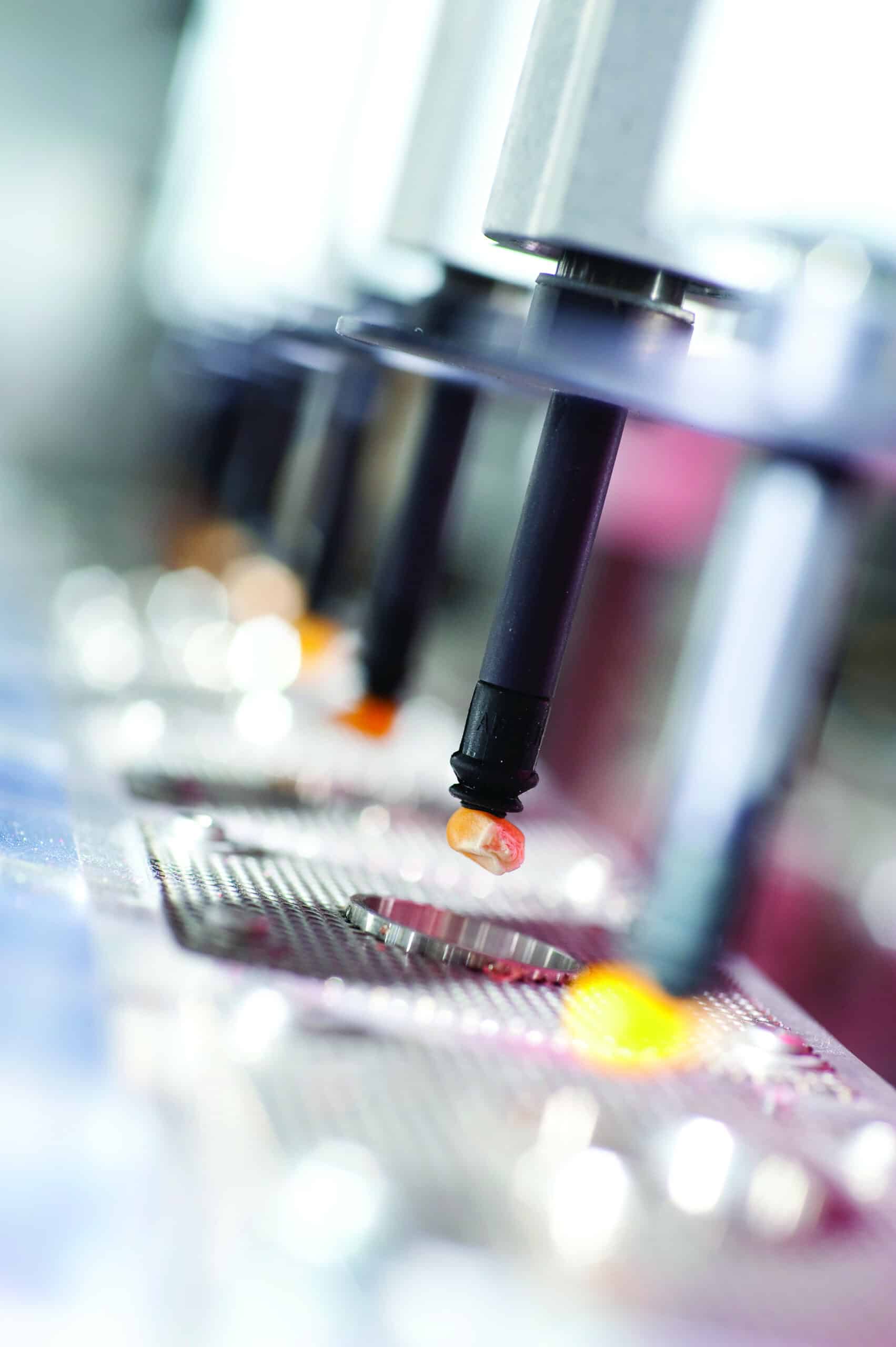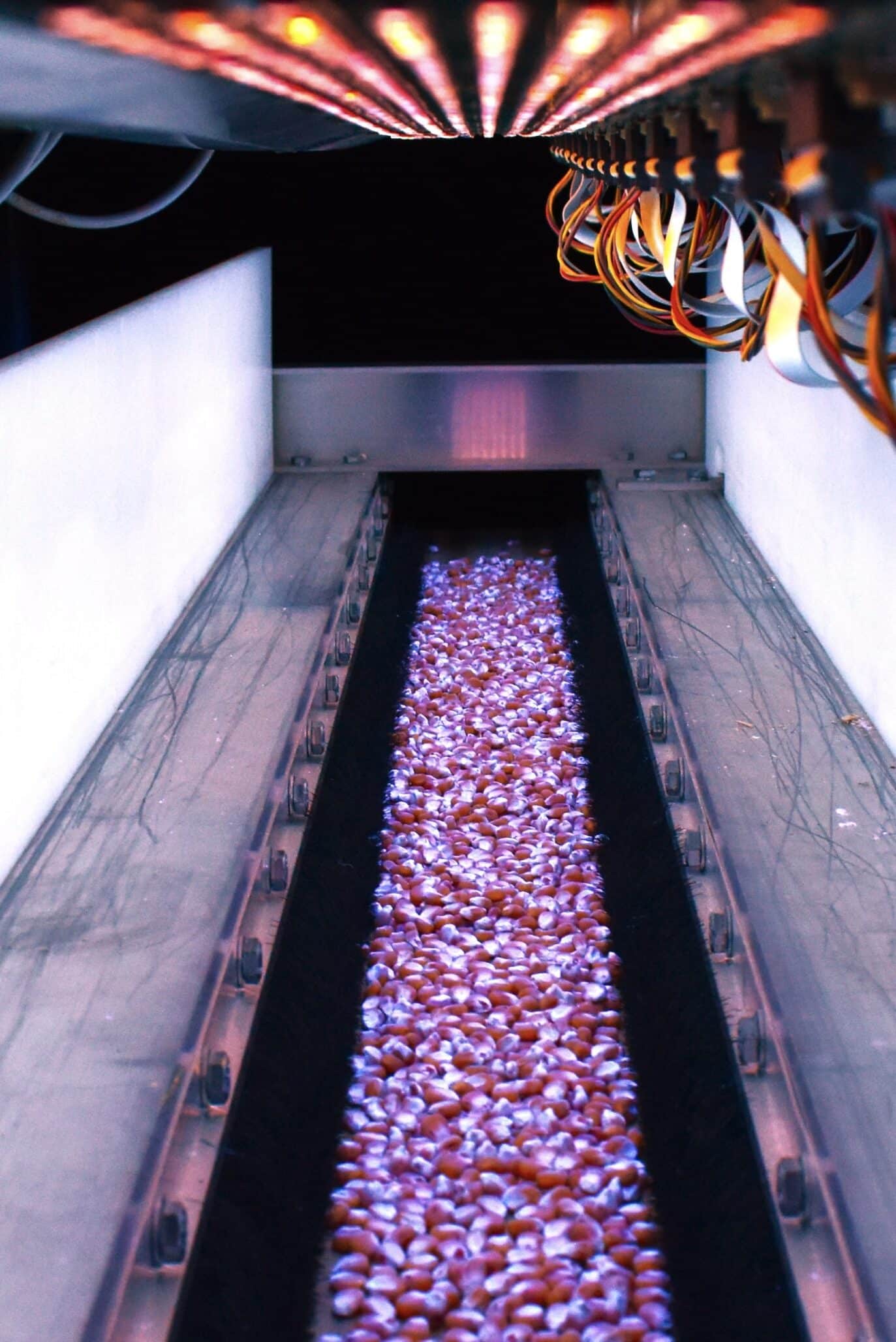Yield performance sets DEKALB, Asgrow and Deltapine apart from the competitors—an advantage that begins with breeding.
Proprietary seed chipping technology enables DEKALB, Asgrow and Deltapine seed breeders the opportunity to put better-performing genetics in the hands of farmers quicker. Bayer is the only company with this technology, applying it to corn, cotton and soybeans. This has resulted in the yield improvements offered in these brands over the past several years.
“Advanced seed chipper technology gives our breeders information to make decisions earlier in the product advancement process so high-yielding candidates can be identified faster and spend more time in field testing,” says JD Rossouw, North America Breeding Lead. “Extensive field testing verifies how our products will perform in environments similar to our customers’ fields. The result is farmers get improved genetic performance with each new DEKALB, Asgrow and Deltapine product release.”
Performed in corn, cotton and soybeans, seed chipping is mainly done at earlier stages of the pipeline to identify high yielding candidates with beneficial traits that could possibly become products. The technology helps seed breeders screen millions more candidates faster than before when using traditional methods.
The seed chipping process takes a small sample, or “chip”, from each seed while preserving the seed’s future ability to grow. Then, the latest marker-assisted breeding, genetic mapping and predictive analytics are used to increase the number of seeds screened early in the breeding process to pinpoint candidates best for testing in local fields. Analytics and genetic sequencing give insight to the best selections very early in the breeding stage, allowing longer field testing before commercialization.
This type of seed breeding, called genotyping, provides breeders the opportunity to screen for beneficial traits quickly without having to grow plants out in the field. The odds of finding the gene for a desired trait using traditional phenotypic-breeding approaches are one in a trillion. In other words, if scientists were visually looking for a plant with the best traits in the U.S., they would essentially be looking for three corn plants in the entire country, with 90 million acres at 30,000 plants per acre to make choices. Breeders for DEKALB, Asgrow and Deltapine can change those odds to just one possibility out of a handful using genotyping.
An extensive, data-driven breeding program results in products thoroughly evaluated based on the latest science and field testing, to help farmers increase yield and minimize risk.
“The seed chipping technology allows us to know every seed,” says Rossouw. “The scale and precision we are using in plant breeding to identify products that are tailored and tested in environments farmers are growing in gives these brands a competitive advantage. Farmers can be confident that new DEKALB, Asgrow and Deltapine products have the best possible genetics and are farm-tested to address the specific challenges faced in their area.”











